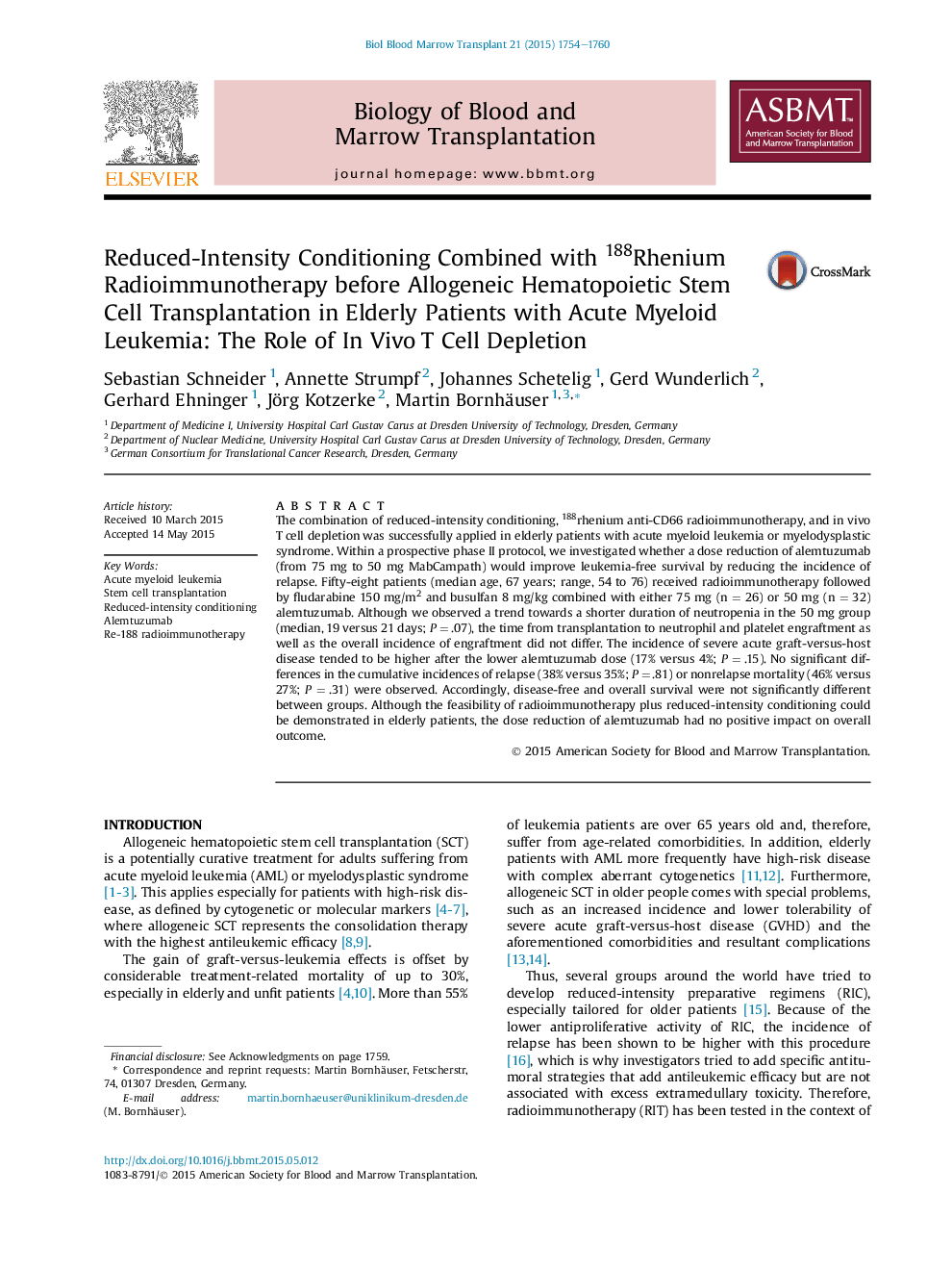| Article ID | Journal | Published Year | Pages | File Type |
|---|---|---|---|---|
| 2101314 | Biology of Blood and Marrow Transplantation | 2015 | 7 Pages |
•We combined reduced-intensity conditioning and 188rhenium anti-CD66 radioimmunotherapy in a prospective phase II trial.•Associated with limited extramedullary toxicity in 58 patients with high-risk acute myeloid leukemia/myelodysplastic syndrome.•Reduction of Campath-1H from 75 to 50 mg did not improve overall outcome.•Further optimization of the current approach is needed.
The combination of reduced-intensity conditioning, 188rhenium anti-CD66 radioimmunotherapy, and in vivo T cell depletion was successfully applied in elderly patients with acute myeloid leukemia or myelodysplastic syndrome. Within a prospective phase II protocol, we investigated whether a dose reduction of alemtuzumab (from 75 mg to 50 mg MabCampath) would improve leukemia-free survival by reducing the incidence of relapse. Fifty-eight patients (median age, 67 years; range, 54 to 76) received radioimmunotherapy followed by fludarabine 150 mg/m2 and busulfan 8 mg/kg combined with either 75 mg (n = 26) or 50 mg (n = 32) alemtuzumab. Although we observed a trend towards a shorter duration of neutropenia in the 50 mg group (median, 19 versus 21 days; P = .07), the time from transplantation to neutrophil and platelet engraftment as well as the overall incidence of engraftment did not differ. The incidence of severe acute graft-versus-host disease tended to be higher after the lower alemtuzumab dose (17% versus 4%; P = .15). No significant differences in the cumulative incidences of relapse (38% versus 35%; P = .81) or nonrelapse mortality (46% versus 27%; P = .31) were observed. Accordingly, disease-free and overall survival were not significantly different between groups. Although the feasibility of radioimmunotherapy plus reduced-intensity conditioning could be demonstrated in elderly patients, the dose reduction of alemtuzumab had no positive impact on overall outcome.
